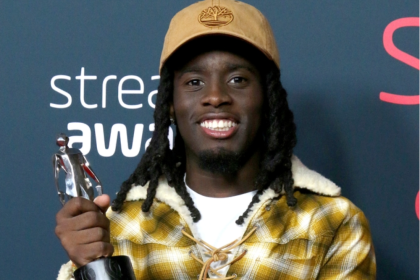50 Cent is expanding his producer portfolio with a new documentary focusing on Luigi Mangione, the individual charged with Brian Thompson’s murder. The announcement arrived through the rapper’s Instagram platform, where he shared his unexpected interest in Mangione’s story. The Power creator’s decision to explore this controversial narrative marks his first venture into true crime documentary filmmaking. This strategic move demonstrates 50 Cent’s evolving role in the entertainment industry, transitioning from music and scripted television to thought-provoking documentary content. The project announcement has already generated significant buzz within the industry, with many speculating about the potential impact of such a high-profile examination of this controversial case.
Behind Mangione’s actions
The documentary aims to delve deep into Mangione’s background, particularly examining his extensive criticism of the American healthcare system. His manifesto highlighted significant disparities in U.S. healthcare accessibility, pointing to the nation’s life expectancy ranking approximately 42nd globally despite having some of the highest healthcare costs worldwide. The documentary will explore Mangione’s personal experiences that shaped his perspective, including reported encounters with medical debt and insurance denials. The production team plans to investigate the broader implications of healthcare inequity in America, using Mangione’s story as a lens through which to examine systemic issues affecting millions of Americans. This includes an exploration of healthcare costs, insurance coverage gaps, and the impact of medical debt on individuals and families across the country.
50 Cent’s production vision
The entrepreneur’s track record in television production, notably with the successful Power franchise, demonstrates his ability to transform complex narratives into compelling content. This new project represents a significant shift from his usual fictional storytelling to documentary format, promising to examine the intersection of healthcare politics and criminal justice. The production team has assembled a group of experienced documentary filmmakers, healthcare experts, and social justice advocates to ensure comprehensive coverage of the subject matter. The documentary will feature extensive research, including statistical analysis of healthcare disparities, expert commentary on systemic issues, and examination of similar cases that highlight the relationship between healthcare access and social unrest. 50 Cent’s involvement extends beyond mere production, as he plans to personally investigate various aspects of the story, bringing his unique perspective and questioning style to the documentary.
Social media influence
The artist’s social media presence has become instrumental in shaping public discourse around various issues. His commentary often bridges entertainment and serious social discussion, making him uniquely positioned to tackle such sensitive subject matter. The announcement of this documentary project has already generated substantial debate across multiple platforms about the ethics of true crime storytelling. The production team is actively engaging with audiences through social media, gathering perspectives and experiences related to healthcare challenges. This interactive approach aims to create a more inclusive narrative that reflects the diverse experiences of Americans struggling with healthcare access. The documentary’s social media strategy includes regular updates on production progress, behind-the-scenes insights, and opportunities for public engagement in the storytelling process.
Healthcare system examination
The documentary is expected to explore broader systemic issues within American healthcare. Through Mangione’s story, the project aims to illuminate the challenges faced by many Americans navigating the healthcare system, while maintaining a balanced perspective on the consequences of extreme actions. The production will include detailed analysis of healthcare policies, insurance industry practices, and their impact on public health outcomes. Statistical comparisons with other developed nations will provide context for understanding America’s unique healthcare challenges. The documentary will also examine proposed solutions and ongoing reform efforts, featuring insights from policy experts, healthcare providers, and advocacy groups working to improve healthcare accessibility and affordability.
Production implications
This documentary presents unique challenges in maintaining objectivity while exploring controversial subject matter. The production team faces the task of presenting a comprehensive narrative that addresses both individual actions and systemic issues without sensationalizing violence. The documentary will employ various storytelling techniques, including data visualization, expert interviews, and historical context to create a nuanced examination of the healthcare crisis. Special attention will be paid to ethical considerations in true crime storytelling, ensuring responsible coverage of sensitive topics. The production schedule spans several months, allowing for thorough research and fact-checking processes. The team is also developing educational resources to accompany the documentary, providing viewers with actionable information about healthcare advocacy and reform initiatives.
















